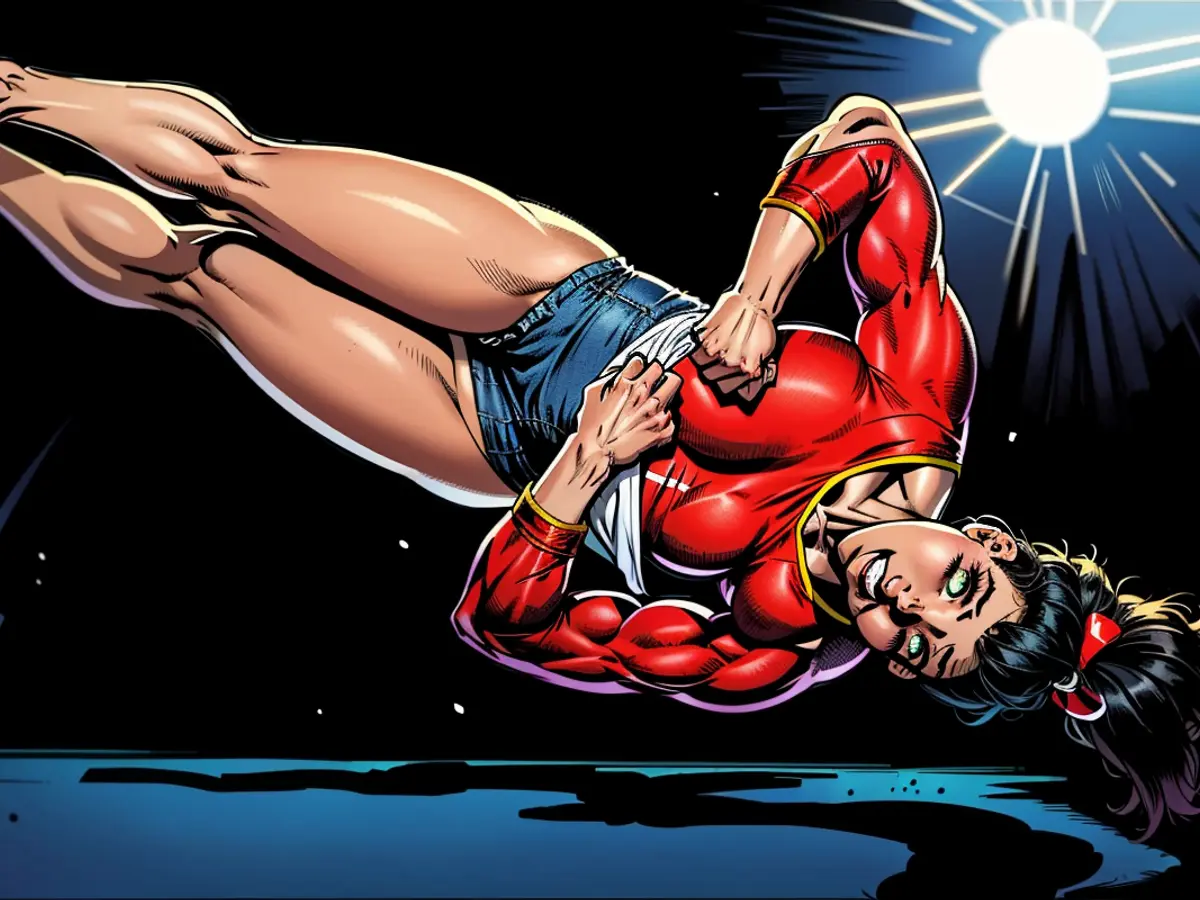US-Turnstar - Simone Biles is back. Will she achieve a great comeback at the Olympics?
The bass beats like a heartbeat. Six times. "Ready For It?" by Taylor Swift growls from the speakers. Of course, the best gymnast in the world enters the mat with the music of the biggest pop star in the world. And Simone Biles starts.
After a two-year break, she is more than ready for her third Olympic Games. Biles wouldn't have had to appear in Paris. Thirty-seven medals at World Championships and Olympic Games is what the exceptional gymnast has earned. Five gymnastic events, called elements, are named after her – so far. Just before her comeback, she announced a sixth one that she will show on Sunday morning. At that time, she was thinking about retiring after her performances in Tokyo.
The Low Point Came at the Olympics
Summer 2021. The Coronavirus pandemic puts everything on hold. Even before the biggest sporting event in the world, the virus makes no exception. The Olympics take place in Japan. The requirements: high. Family or companions for the athletes are not allowed. The pressure: too high. Even for an exceptional athlete like Biles. At that time, she had been suffering from the "Twisties" – a term used in gymnastics for losing orientation during jumps – for weeks. After the first routine, she quit, causing a stir in the sports world. She justified her withdrawal with her mental health.
Three years later, she recalls, "If my ankle had been broken, I might have competed," Biles says in a recently released Netflix documentary about her life. "But that wasn't the case. With my mental and physical condition, I could have injured myself much more severely than at the ankle."
Risky jumps are nothing new for the 27-year-old. If she loses orientation, she could seriously injure herself or even die. An exception, however, is that an athlete at this level prioritizes her mental health.
Demons
The "demons" she speaks of have a long history. Biles' biological mother had a drug and alcohol problem, and all four children were taken away from her. As a child, she was in a foster home before her grandparents adopted her and her little sister. Her grandparents, whom she calls her parents, introduce her to gymnastics and recognize her talent in the young Simone.
In competitive sports, she celebrates early successes. Her preliminary career peak comes at the Olympics in Rio 2016. She wins five medals there, all in gold. Then come the depressions. "After the trip, I thought: I have achieved everything at 19. What the hell am I going to do with the rest of my life?" Biles says in the Netflix documentary. "I knew I needed to rest. But I couldn't." Then came the media reports.
The success of US athletes was created by a system that ruined the participants. What was then considered the gold standard of training and brought success went far beyond permissiveness. The US Gymnastics Federation provided Biles, like many other minor athletes and athletes, with – military trainers who had no feelings. And with the sexually abusive sports doctor Larry Nassar. Nassar abused 265 girls in 20 years, including Simone Biles. He was arrested in 2016 and sentenced to a prison term of 175 years. To date, survivors have been awarded approximately one billion dollars in compensation. Because they were not believed. Because no one prevented the abuse.
"A Total Collapse Would Have Been Preferable"
Biles assesses her mental low point in Tokyo today as a result of these traumas. "I would have rather had a complete breakdown. But just when otherwise." Not even at the Olympics, where professional athletes work their entire lives for. Even with much support, she is criticized as a "quitter" on social media. As a coward. As one who gives up. But she does the opposite.
Biles is seeking help and going into therapy. She also encourages others in her openness: "Many people have felt that way and have sought help," she says on Netflix. She also supports her husband, NFL player Jonathan Owens, in her own way. The couple married in May 2023.
Simone Biles: 1.42 meters of raw power
Biles has changed the Games. Together with other athletes like Naomi Osaka. The International Olympic Committee has taken consequences from the mental pressure: Hundreds of trainer teams and staff in the field of mental health have been trained since Tokyo. A novelty.
Biles didn't have to come back. But she wants to. For over a year, she has been tormented in the gym, building foundations anew – and has the "Twisties" under control today. "There have been so many things that have made me feel terrible in this sport," she says in the documentary. "I couldn't let him take that last thing from me." She wanted "no fear" of the sport that has been her 1.42-meter powerhouse her entire life and made her one of the best and most famous athletes in the world.
In Paris, she could break up to ten records – as the oldest gymnast since 72 years to compete in an Olympic women's team. Biles seems to be holding it like in a Swift song: "Baby, let the games begin!" Let the games begin.
Sources: "New York Times", "Sports Illustrated", Netflix, "Sport1", "Tagesspiegel", "NBC"
Following her mental health struggle at the 2021 Olympic Games in Tokyo, Simone Biles looked back and stated, "If my ankle had been broken, I might have competed. But that wasn't the case. With my mental and physical condition, I could have injured myself much more severely than at the ankle." (Netflix documentary)
Despite facing criticism as a "quitter" and "coward" on social media, Biles chose to seek help and go into therapy. She also encouraged others to seek help and shared her experiences in the Netflix documentary.
The United States of America's gymnastics phenomenon, Biles, has had a significant impact on the Olympic Games. Her comeback and perseverance after the traumatic events in Tokyo led the International Olympic Committee to train hundreds of trainer teams and staff in the field of mental health since the 2020 Games. This initiative is expected to support athletes in dealing with mental pressure and promoting better mental health in sports.









